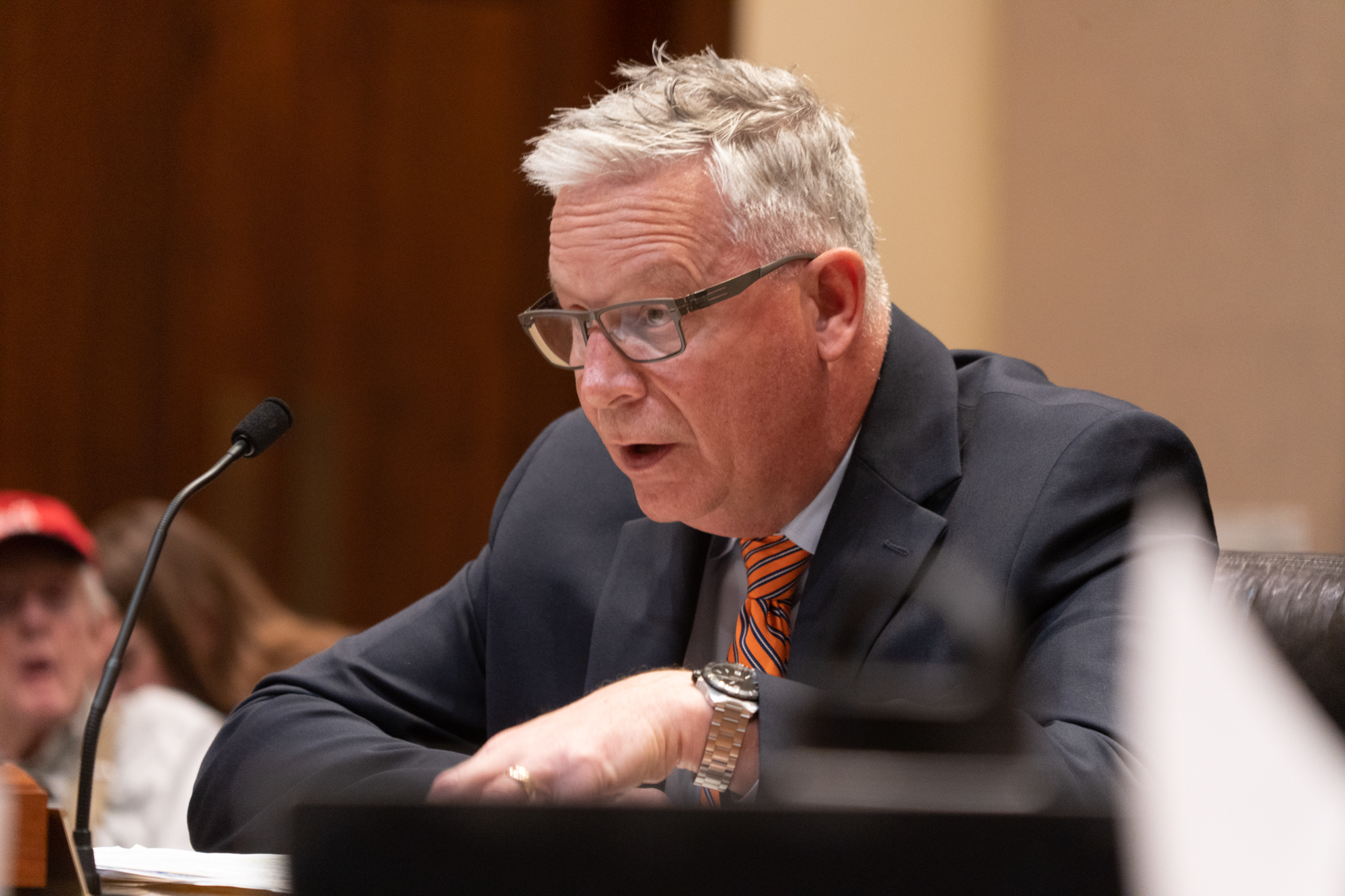
LINCOLN — In two months since parents and allies of transgender teens warned at a public hearing against regulating gender-affirming care for minors too strictly, Nebraska’s chief medical officer made no significant changes to draft regulations proposed to meet a new law.

HHS spokesman Jeff Powell said Monday that neither Chief Medical Officer Dr. Timothy Tesmer nor HHS would comment on the lack of changes from public feedback. The rules took an incremental step toward adoption Monday when the Nebraska State Board of Health reviewed them and sent them on for legal review.
The last two steps in the process are reviews by the Nebraska Attorney General’s Office and signoff from Gov. Jim Pillen, who has publicly expressed support for the intentions of Legislative Bill 574, introduced by State Sen. Kathleen Kauth of Omaha.
The new regulations need to be in place by the end of March.
Kauth had no immediate comment. Pillen, in a pre-session interview, said that he has no problem with transgender adults or kids in the state and that he loves them “like any other Nebraskan.” He said he wants young people to be mature enough to know what they want and the consequences of their actions before they pursue treatments or surgeries.

“I just want to protect our kids so they can make decisions when they’re an adult to become a transgender just like you did,” he said in a late December interview with the Examiner.
Critics say rules, like law, are discriminatory
Critics of the rules have said the bill and its accompanying regulations discriminate against young people who are simply trying to be themselves. They argue that trans youth are already at high risk of being bullied and of suicide and that making them wait for certain treatments could make things worse.
State Sen. Megan Hunt of Omaha, whose son is trans, said she was under no illusion that Tesmer, HHS, Kauth, Pillen or Attorney General Mike Hilgers would act differently. She said they and others “would like to erase the existence of trans youth from Nebraska.”
“I always said that anyone who thought this wasn’t going to result in a total functional ban of gender-affirming care for youth were fooling themselves, and I was right,” Hunt said.

Hunt, who joined State Sen. Machaela Cavanaugh of Omaha’s effort last session to filibuster LB 574, said she wants trans people to know they “exist, have always existed, and we will always have trans youth in Nebraska who are loved and valued, no matter what their government tells them.”
Cavanaugh said it was “really unconscionable” not to take any of the constructive feedback on how to improve the implementation of the law from mental health providers, pharmacists, doctors, teens and others who attended the all-day public hearing in November.
“I’m upset,” she said. “The whole point of having the public hearing is to get the input of the people impacted by it. Whether you agree with this legislation or not, there still needs to be a process for implementation that honors the intention of it all.”

The proposed rules require a minimum of 40 hours of therapy before gender-affirming care, including hormones and puberty blockers, can be provided. They set guidelines on how medical providers secure patients’ and parents’ informed consent and mandate a waiting period between consent and prescriptions.
Medical professionals told the Examiner last fall that the draft regulations would require minors to wait at least five months and in some cases 10 months or longer between their initial consultation and access to hormone therapy. The regulations also say that the therapy should be “clinically objective.”



